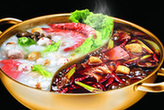On July 15, 2004, Sepp Blatter, president of FIFA, formally announced to the world that soccer originates in Zibo, Shandong province, China. While maybe few people know that this sport is called Cuju in ancient China.
|
|
|
|
The game of cuju was first mentioned in the Zhan Guo Ce (under State of Qi's section) and later in the Sima Qian's Shiji (under Su Qin's biography), written during the Han Dynasty. Some claim that the Yellow Emperor invented the game for military training purposes, while others place its emergence during China's Warring States Period (476-221 BC). In any case, it certainly existed during this period. A competitive form of cuju was used as fitness training for military cavaliers, while other forms were played for entertainment in wealthy cities like Linzi.
During the Han Dynasty (206 BC-AD 220), the popularity of cuju spread from the army to the royal courts and upper classes. It is said that the Han emperor Wu Di enjoyed the sport. At the same time, cuju games were standardized and rules were established. Football matches were often held inside the imperial palace. A type of court called ju chang was built especially for cuju matches, which had six crescent-shaped goal posts at each end.
The sport was improved during the Tang Dynasty (618-907). First of all, the feather-stuffed ball was replaced by an air-filled ball with a two-layered hull. Also, two different types of goal posts emerged: One was made by setting up posts with a net between them and the other consisted of just one goal post in the middle of the field. The Tang Dynasty capital of Chang'an was filled with cuju football fields, in the backyards of large mansions, and some were even established in the grounds of the palaces.[4] Soldiers who belonged to the imperial army and Gold Bird Guard often formed cuju football teams for the delight of the emperor and his court. The level of female cuju teams also improved. Records indicate that once a 17-year-old girl beat a team of army soldiers. Cuju football even became popular amongst the scholars and intellectuals, and if a courtier lacked skill in the game, he could pardon himself by acting as a scorekeeper.
Cuju flourished during the Song Dynasty (960-1279) due to social and economic development, extending its popularity to every class in society. At that time, professional cuju players were quite popular, and the sport began to take on a commercial edge. Professional cuju players fell into two groups: One was trained by and performed for the royal court (unearthed copper mirrors and brush pots from the Song often depict professional performances) and the other consisted of civilians who made a living as cuju players.




Why not rent a boyfriend, or girlfriend to please parents during the Spring Festival?